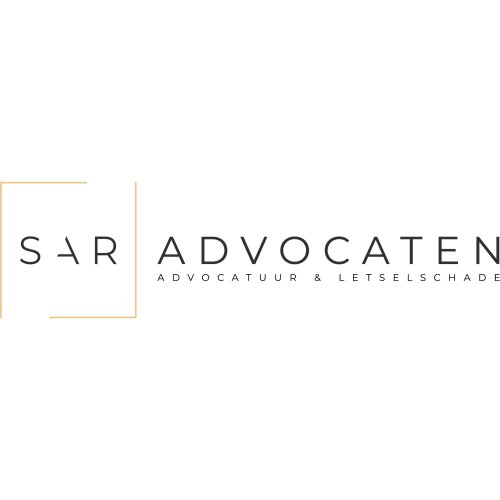Best Employment Rights Lawyers in Netherlands
Share your needs with us, get contacted by law firms.
Free. Takes 2 min.
Or refine your search by selecting a city:
List of the best lawyers in Netherlands
About Employment Rights Law in Netherlands
Employment rights in the Netherlands are governed by a combination of national legislation, European Union regulations, and collective labor agreements. The Dutch labor market is known for its strong emphasis on protecting employee rights and promoting fair employment relations. Key areas covered under employment law include contracts, working conditions, wages, anti-discrimination, health and safety, and dismissal procedures. The Dutch legal framework is designed to ensure employees' rights are respected while providing clear guidelines for employers.
Why You May Need a Lawyer
There are several situations where you might require the assistance of a lawyer specializing in employment rights in the Netherlands:
- Unlawful Dismissal: If you believe you have been unfairly or wrongfully terminated from your job.
- Discrimination or Harassment: Experiencing discrimination on grounds such as gender, age, race, or facing workplace harassment.
- Contract Disputes: Issues related to employment contracts, such as unfair terms or violations.
- Wage Disputes: Concerns regarding unpaid wages, bonuses, or other compensation-related issues.
- Working Conditions: If your employer is violating health and safety regulations or if working conditions are poor.
- Collective Agreement Issues: Disputes concerning collective labor agreements applicable to your industry or sector.
- Workplace Privacy Violations: Breaches related to personal data and privacy in the workplace.
Local Laws Overview
The Netherlands has a comprehensive set of laws that safeguard employment rights, including:
- Work and Security Act: Governs dismissal procedures and promotes job security.
- Equal Treatment Act: Prevents discrimination on various grounds and promotes equal treatment.
- Working Conditions Act: Ensures safe and healthy work environments.
- Working Hours Act: Regulates work hours, rest periods, and overtime.
- Minimum Wage and Minimum Holiday Allowance Act: Determines statutory minimum wage and holiday entitlements.
- Dutch Civil Code: Contains provisions on employment contracts and labor relations.
- General Data Protection Regulation (GDPR): Protects employees' personal data in the workplace.
Frequently Asked Questions
What is the minimum wage in the Netherlands?
The minimum wage in the Netherlands is set twice a year, on January 1 and July 1. It varies by age and can be found on the government's official websites. Generally, individuals aged 21 and older receive the full minimum wage.
How much notice must an employer give before terminating a contract?
Notice periods depend on the length of employment. They range from one month for employment under five years to four months for employment over fifteen years. Specific collective agreements may have different terms.
Are employees entitled to paid sick leave?
Employees are entitled to up to two years of paid sick leave, with the employer covering at least 70% of their salary, though this may be up to 100% depending on the employment contract or collective agreement.
What are the rules regarding overtime payment?
While the standard working hours are typically 40 hours per week, overtime pay rates are determined by the collective labor agreements or individual employment contracts.
Can my employer change my employment contract without consent?
Changes to the employment contract require mutual consent between the employer and employee. Employers must provide valid reasons for any proposed changes.
What protection do whistleblowers have?
The Whistleblowers Authority offers protection to employees reporting misconduct, ensuring they cannot be dismissed or mistreated for whistleblowing.
How are parental leave rules structured?
Employees are entitled to unpaid parental leave of up to 26 times their weekly working hours per child, available until the child turns 8. Paid paternity leave is also available for partners.
Is discrimination in recruitment illegal?
Yes, discrimination during recruitment on any grounds such as race, gender, or age is illegal under the Equal Treatment Act.
Are there maximum working hours in the Netherlands?
The maximum working hours are generally 12 hours per day and 60 hours per week, though on average over a 16-week period, it should not exceed 48 hours per week.
What are my rights during a probationary period?
During the probationary period, either party can terminate employment without notice, but it must be mutually agreed upon in the contract. The maximum probationary period is two months.
Additional Resources
For more information and resources on employment rights in the Netherlands, consider the following:
- Ministerie van Sociale Zaken en Werkgelegenheid (Ministry of Social Affairs and Employment): Provides information on labor laws and regulations.
- UWV (Employee Insurance Agency): Offers support with employment termination and unemployment benefits.
- Inspectie SZW (Social Affairs and Employment Inspectorate): Ensures compliance with labor laws and regulations.
- Legal Aid Board (Raad voor Rechtsbijstand): Offers free or subsidized legal aid for those who qualify.
- Trade Unions: Offer support and advice on employment rights and disputes.
Next Steps
If you require legal help with employment rights in the Netherlands, consider the following steps:
- Consult a Lawyer: Seek professional advice from a lawyer specializing in employment law to understand your rights and options.
- Gather Documentation: Collect relevant documentation, such as contracts, correspondence, and records of the issue at hand.
- Explore Mediation: Attempt resolution through formal discussions or mediation with your employer before escalating the matter legally.
- Contact HR or Union Representatives: Reach out to HR or a union representative for assistance if you are part of a union.
- Use Government Resources: Access available government support and resources for guidance and assistance.
Lawzana helps you find the best lawyers and law firms in Netherlands through a curated and pre-screened list of qualified legal professionals. Our platform offers rankings and detailed profiles of attorneys and law firms, allowing you to compare based on practice areas, including Employment Rights, experience, and client feedback.
Each profile includes a description of the firm's areas of practice, client reviews, team members and partners, year of establishment, spoken languages, office locations, contact information, social media presence, and any published articles or resources. Most firms on our platform speak English and are experienced in both local and international legal matters.
Get a quote from top-rated law firms in Netherlands — quickly, securely, and without unnecessary hassle.
Disclaimer:
The information provided on this page is for general informational purposes only and does not constitute legal advice. While we strive to ensure the accuracy and relevance of the content, legal information may change over time, and interpretations of the law can vary. You should always consult with a qualified legal professional for advice specific to your situation.
We disclaim all liability for actions taken or not taken based on the content of this page. If you believe any information is incorrect or outdated, please contact us, and we will review and update it where appropriate.
Browse employment rights law firms by city in Netherlands
Refine your search by selecting a city.















